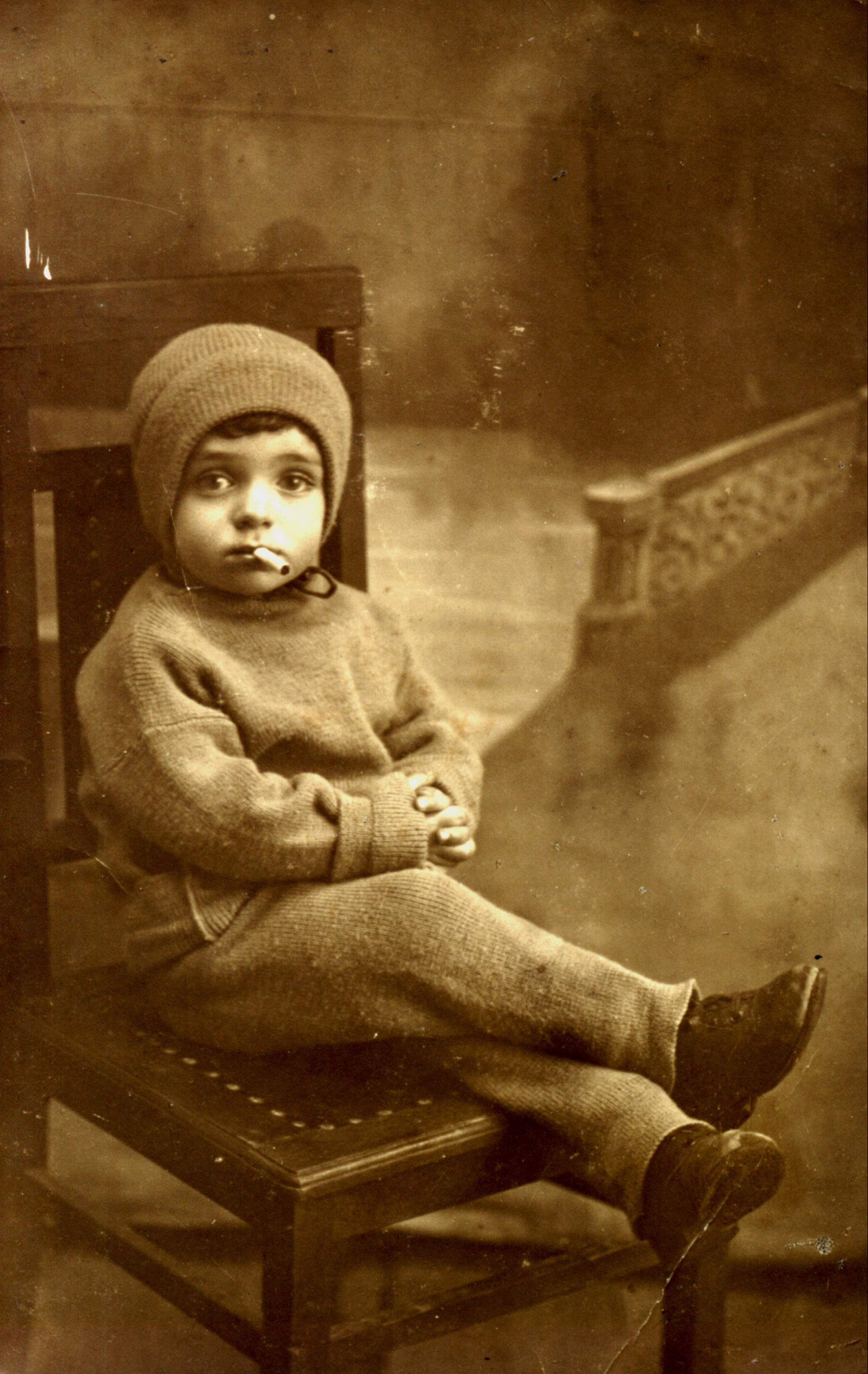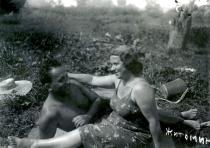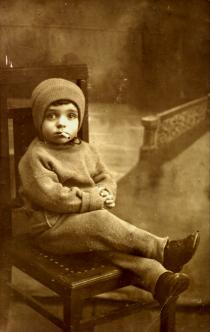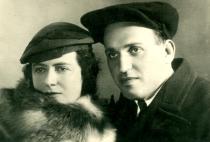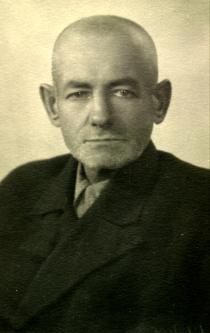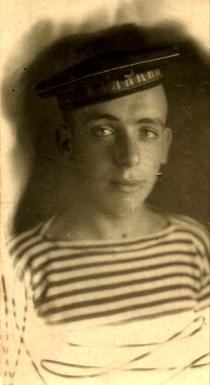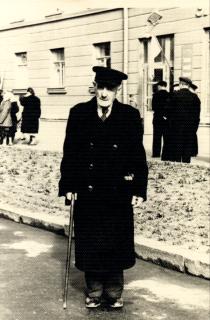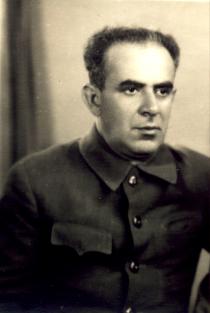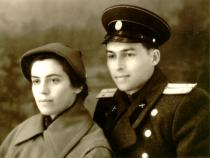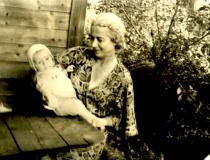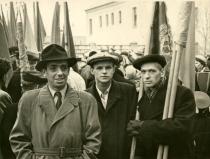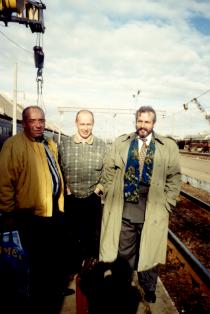This is me at the age of 3, photographed in Zhitomir in 1930. I was given a cigarette for a joke.
I was born on 8 November 1927. I was named Shlyoma, but later I changed this name to the Russian name of Semyon for convenience. I have some memories of my childhood. I remember visiting my maternal grandfather and grandmother at Chanukkah. Of course, I learned the name of the holiday later, but I remember delicious doughnuts that my grandmother made and I also received some money from them. My grandmother made delicious pastries and the biggest offence for her was when somebody told her that they had eaten more delicious doughnuts. My grandfather took me to the synagogue: a big two-storied building in the center of Zhitomir. When my grandmother went with us she went upstairs and my grandfather and I stayed downstairs. We often visited my father's parents in Ovruch. I remember the first Pesach in my life that we celebrated in their house. My father's relatives got together on this holiday and his sister came from Korosten. There was a table beautifully set for dinner. My grandfather was reclining on two cushions with his back to the door. I was to find a piece of matzah that he hid under a cushion. There was a lot of laughter and comments while I was looking for it. Then my grandfather conducted seder and I posed four questions to him about the nature of this holiday and my father helped me. I think I have such bright memories about these celebrations since they were unusual for me. We didn't observe Jewish traditions in our family, though my mother or father never joined Komsomol or the party, but they were atheists. In the early 1930s we lived in Olevsk of Zhitomir region, 70 km from Zhitomir. My father was offered to work in a store and the family moved to this town. We lived with some relatives in a wooden house with a garret. I have dim memories of famine in 1932-33, when my father brought some packages from his work. This was dried bread that we dipped in water before eating them. I remember a constant feeling of hunger, but nobody died in our family, though there were dead people in the streets every morning and special trucks picked them. We stayed in Olevsk less than a year. My father proved to be good in trading business. Although he didn't have any special education he was offered to become director of a fish store and in 1935 he got an offer to become director of a big food store in Zhitomir. We returned to Zhitomir. We got an apartment in Zhitomir.
In 1935 I went to a Russian school. My parents didn't even discuss my going to a Jewish school. We spoke Russian in the family. My parents rarely switched to Yiddish when they didn't want me to understand the subject of their discussions. My grandfather still took me to the synagogue on Saturday, but I lost interest in it. I ran away from him until my mother told him to stop taking me with him. I preferred to spend time playing with my friends. There were Russian, Ukrainian and Polish children among my friends. Nationality didn't matter. We spoke Russian and enjoyed spending time together. There were few Jewish families among our neighbors. They didn't observe any Jewish traditions either. My friends and I played war and pirate games and football. We often went fishing to the Teterev River. There were picturesque spots in the area: I can still remember the smell of newly mown hay and meadow herbs. Another boys' hobby was keeping pigeons. My father made a pigeon house in the yard and we spent there all our spare time.
